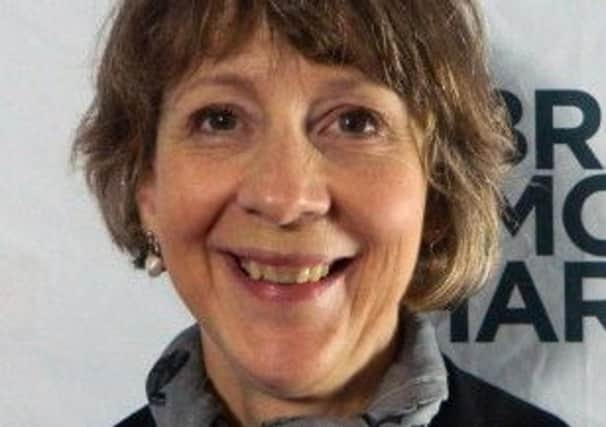Scientists to target virus on brain tumours


Every year 9,000 people in the UK are diagnosed with a brain tumour which remains the biggest cancer killer of children and adults under 40.
Now a £3m research programme will examine using viruses to target cancerous cells without harming healthy ones. The viruses target and “invade” tumour cells, multiplying inside them until they burst and are destroyed.
Advertisement
Hide AdAdvertisement
Hide AdThey can also be primed with anti-cancer drugs to boost their destructive potential as they home in on tumour cells.
Researchers from Leeds University want to find out whether the cancer-killing viruses can reach tumours in the brain even if they are injected into the bloodstream elsewhere.
If they can breach the so-called blood/brain barrier, it would represent a significant advance in treating tumours that are notoriously hard to reach, experts say.
The ground-breaking study unveiled today, which is co-funded by a £1.5m grant from The Brain Tumour Charity, will look specifically at the effect of the viruses on the most common type of fast-growing malignant brain tumour, known as a high-grade astrocytoma. This kind of tumour can affect children and adults and there are currently few effective treatments.
Advertisement
Hide AdAdvertisement
Hide AdProf Susan Short, who is leading the five-year project at the Leeds Centre for Translational Neuro-Oncology, said the research could benefit patients who are hardest to treat.
“Since these viruses are non-toxic, they could be appropriate in situations in which standard treatment is difficult – for example, in young children or older people,” she said.
Prof Short and her team will also investigate ways of “switching off” the mechanism by which brain cancer cells repair themselves and re-appear after radiotherapy.
This part of their research involves drugs that are already used safely on patients with other conditions so they could be used to treat brain tumours within the next five years.
Advertisement
Hide AdAdvertisement
Hide AdIn addition, the team will explore whether drug treatments for tumours can be carried to relatively inaccessible parts of the brain by normal developing blood cells. Prof Short claimed that taken together, the three research strands funded by the charity held out the prospect of real improvements in brain tumour treatment.
“We are well aware that there aren’t enough clinical studies for brain tumour patients,” she said.
“There are a lot of patients who are very keen to help us test new treatments but we need some new ideas to move from the lab into the clinic.
“So the first thing we want to achieve with this research programme is to provide some new ideas that we can use in a clinical environment.”
Advertisement
Hide AdAdvertisement
Hide AdThe Leeds grant is part of a wider £10m investment programme for brain tumour research in the UK. Half of the total funding will come from the charity and half from other sources.
Neil Dickson, vice-chairman of The Brain Tumour Charity, described the investment as a major milestone in brain tumour research and it was hoped it would bring about “much-needed” improvements in the treatment of tumours.
“This level of spending on brain tumour research is unprecedented in the UK,” he said.
“It has been made possible by our dedicated supporters and fundraisers around the country, many of whom have personal experience of the devastating effects of a brain tumour.”
Advertisement
Hide AdAdvertisement
Hide AdA spokesman for charity Brain Tumour Research and Support Across Yorkshire, formerly Andrea’s Gift, which helped fund the Leeds Translational Neuro-Oncology Group, also welcomed the announcement.
“It is an exciting step in furthering the collaborative work ethic of the brain tumour charities and we hope this research will result in better outcomes for brain tumour patients,” he said.
Brain tumours claim 5,000 lives a year and only one in seven adults survive for five years after diagnosis.
About 500 children and young people are diagnosed with brain tumours each year and they are the largest cause of preventable blindness in children.
Advertisement
Hide AdAdvertisement
Hide AdChildren who survive brain tumours are 10 times more likely to suffer long-term disability than other children.
But campaigners say of £500m spent on cancer research each year, fewer than two per cent is spent on brain tumours.
email [email protected]